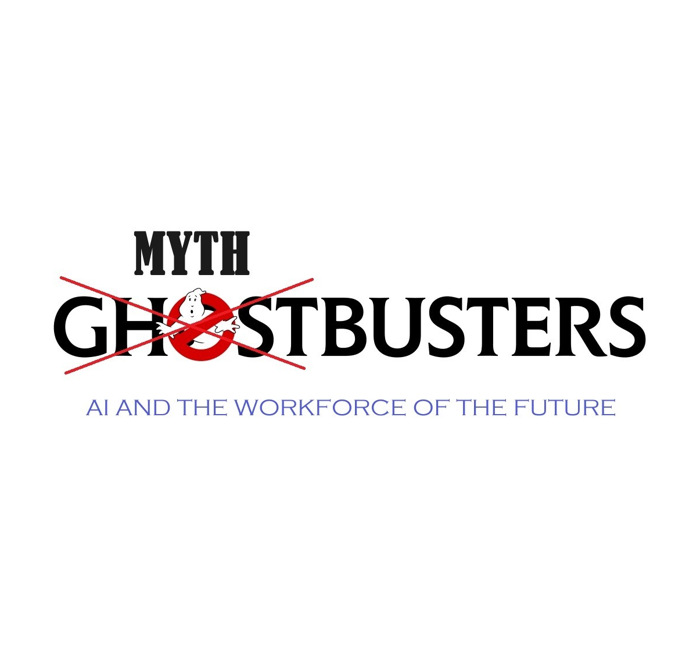Thank you to smartR.AI for sharing their blogs in our knowledge base.

The World Economic Forum predicts that AI is expected to displace 85 million jobs by 2025. Yet, what is often left out of the picture is that 97 million new roles may emerge over the same period.
The loss of jobs created by the industrial revolution is often used as a warning for what we can expect from the AI revolution. Apocalyptic visions of AI replacing most human jobs are common amongst doomsdayers. While it’s true that every new technology created has led to some job losses, a myriad of new roles have also entered the job market.
The invention of the electronic lightbulb has removed the need for manual gas lighters responsible for lighting streetlights, but we now have electricians. Similarly, automation has made switchboard operators redundant, but there are still plenty of jobs and roles within telecommunication companies. We need to think about technology not as a job destroyer, but as a job re-definer. In this blog we aim to bust some of the most common myths regarding the impact of AI on employment.
A report by MIT and Boston University predicts that 14% of employees globally may have to change their career due to digitization, robotics and AI advancements. While it’s true that this change will also come with the creation and demand of new roles such as: AI product manager, AI ethicist, Algorithm auditor, Robotics engineer, AI research scientist etc. In fact, data scientists will be in high demand due to the need for clean and quality data and analysis. We must acknowledge that the impact of AI will be massive and that any great change to the landscape of employment is felt more by some groups than by others. For some, this change will be difficult and highly disruptive.
As a result, it’s important for countries and companies to begin thinking about how they might re-skill their workers. The impact of AI on the workforce has begun but the changes won’t be immediate, with some predicting it could take half a century or more. It is positive to see that 65% of companies pursuing AI are also investing in the reskilling of current employees. Michael Chui suggests that we won’t be replaced by AI or technology, but will merely partner more deeply with it.
Not only should countries consider reskilling workers, but the socioeconomic impacts of this change to the workforce should also be considered. Some suggest that just as the industrial revolution brought greater overall prosperity, so too might AI achieve the same. As the workforce generally becomes more productive, quality of living may increase and its effects spread across all of society. However, others warn that the industrial revolution also deepened economic divides, and that the impact of AI on the workforce could result in the same thing occurring.
 Up until now greater automation and information technology has tended to affect routine tasks and mostly low-skilled workers, but with the introduction of AI the greatest affect is likely to be felt by high-skilled workers. The effect on labour income will depend on whether AI will complement high-skilled workers, if it does then it may lead to disproportionate increase in their labour income. Thus, exacerbating inequality. We might see workers who are able to harness AI face an increase in productivity and wages, whereas those who cannot fall behind.
Up until now greater automation and information technology has tended to affect routine tasks and mostly low-skilled workers, but with the introduction of AI the greatest affect is likely to be felt by high-skilled workers. The effect on labour income will depend on whether AI will complement high-skilled workers, if it does then it may lead to disproportionate increase in their labour income. Thus, exacerbating inequality. We might see workers who are able to harness AI face an increase in productivity and wages, whereas those who cannot fall behind.
Developing countries may not have the infrastructure or skilled workforces to harness the benefits of AI. While this means these economies will face fewer disruptions to their workforces, it also risks worsening inequalities between developed and developing countries. AI preparedness indexes, such as the IMF’s, can help countries craft the right policies to ensure they have the right digital infrastructure, human-capital and labour market policies to deal with the impact of AI on their country.
The visions of an AI dominated workforce such as those perpetuated by the kids movie WALLE are alarmist and unrealistic. Yet, we must not underestimate the impact AI will have on redefining the workforce. Countries and companies should start to prepare and reskill their workforce now to prepare for the future.
Here are three things your company can do to upskill their workforce:
Ensure everyone has foundational basic training in using AI tools.
Identify skill gaps in the workforce and build specific training programmes designed to fill them.
Create incentives for employees to upskill themselves and calm fears about job losses.
Written by Celene Sandiford, smartR AI
Photo credit: https://www.midstory.org/no-ignorance-is-not-bliss-a-2020-review-of-wall-e/